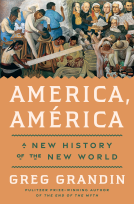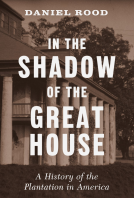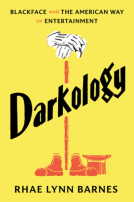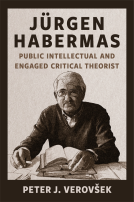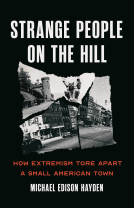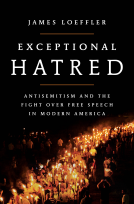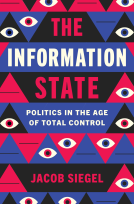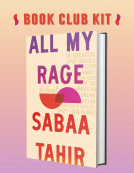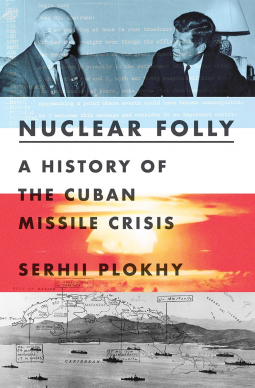
Nuclear Folly
A History of the Cuban Missile Crisis
by Serhii Plokhy
This title was previously available on NetGalley and is now archived.
Send NetGalley books directly to your Kindle or Kindle app
1
To read on a Kindle or Kindle app, please add kindle@netgalley.com as an approved email address to receive files in your Amazon account. Click here for step-by-step instructions.
2
Also find your Kindle email address within your Amazon account, and enter it here.
Pub Date Apr 13 2021 | Archive Date Mar 31 2021
Talking about this book? Use #NuclearFolly #NetGalley. More hashtag tips!
Description
A harrowing account of the Cuban missile crisis and how the US and USSR came to the brink of nuclear apocalypse.
Nearly thirty years after the end of the Cold War, today’s world leaders are abandoning disarmament treaties, building up their nuclear arsenals, and exchanging threats of nuclear strikes. To survive this new atomic age, we must relearn the lessons of the most dangerous moment of the Cold War: the Cuban missile crisis.
Serhii Plokhy’s Nuclear Folly offers an international perspective on the crisis, tracing the tortuous decision-making that produced and then resolved it, which involved John Kennedy and his advisers, Nikita Khrushchev and Fidel Castro, and their commanders on the ground. In breathtaking detail, Plokhy vividly recounts the young JFK being played by the canny Khrushchev; the hotheaded Castro willing to defy the USSR and threatening to align himself with China; the Soviet troops on the ground clearing jungle foliage in the tropical heat, and desperately trying to conceal nuclear installations on Cuba, which were nonetheless easily spotted by U-2 spy planes; and the hair-raising near misses at sea that nearly caused a Soviet nuclear-armed submarine to fire its weapons.
More often than not, the Americans and Soviets misread each other, operated under false information, and came perilously close to nuclear catastrophe. Despite these errors, nuclear war was ultimately avoided for one central reason: fear, and the realization that any escalation on either the Soviets’ or the Americans’ part would lead to mutual destruction.
Drawing on a range of Soviet archival sources, including previously classified KGB documents, as well as White House tapes, Plokhy masterfully illustrates the drama and anxiety of those tense days, and provides a way for us to grapple with the problems posed in our present day.
About the Author: Serhii Plokhy, Mykhailo S. Hrushevs'kyi Professor of Ukrainian History and director of the Ukrainian Research Institute at Harvard University, is a leading authority on the history of the Cold War.
Advance Praise
"Nearly sixty years after the Cuban missile crisis, Serhii Plokhy, the author of multiple groundbreaking books on Soviet history, once again uses newly released KGB archives to offer a new perspective: In gripping, granular detail, he shows us just how close the United States and the Soviet Union came to Armageddon. At a moment when nuclear technology is still spreading, Nuclear Folly reminds us of the danger we all still face." - Anne Applebaum, winner of the Pulitzer Prize and author of Twilight of Democracy: The Seductive Lure of Authoritarianism
"If you think the story of the Cuban missile crisis has been told so often that nothing remains to be learned, think again! Drawing on KGB documents preserved in Ukrainian archives and Soviet military memoirs, as well as American documents and Cuban materials, Serhii Plokhy’s almost hour-by-hour account freshly illuminates mistakes by the Kremlin and the White House that triggered the crisis and snafus at sea and in Cuba that almost sparked a nuclear war, while drawing ominous lessons for our own once again hair-trigger nuclear age." - William Taubman, winner of the Pulitzer Prize and author of Gorbachev
"Plokhy dives deep.... History buffs will savor this balanced and richly detailed look at both sides of the crisis." - Publishers Weekly
Available Editions
| EDITION | Hardcover |
| ISBN | 9780393540819 |
| PRICE | $35.00 (USD) |
Average rating from 3 members
Featured Reviews
If you haven't read Plokhy's book on Chernobyl, start there. It's a great work and it's what brought me to this book. However, this book is closely behind it. The Cuban Missile Crisis gets a reputation as political jockeying in order to avoid nuclear war, but the book makes it much more than that. It is a book about power politics, exploring the motivations of the Soviet Union and putting it squarely in context of the larger Cold War, specifically with the developments in central Europe.
The greatest benefit this book brings is a narrative that combines both US and USSR points of view. So many books focus on only the American view, that it removes all of the drama and discussion that went on in Russia. (Granted, those sources are probably only becoming now available). However, this provides a really full, detailed account of the before, during, and after, of the events.
It's much more objective than a lot of other works. Let's be honest: don't judge the Cuban Missile Crisis on Thirteen Days; it's a good read, but its bias should be clear. Plokhy's bias as a historian of European history serves him well here. There is not much American foreign policy history that only requires the American viewpoint, and he does a nice job trying to simultaneously look at both sides and how they reacted.
A word on readability, as well: Plokhy is a great writer. This not dry analytical writing, it reads as narration to a gripping documentary. It will keep your attention until you hit the endnotes (and if you're very interested, maybe even past that point)
 Michael G, Reviewer
Michael G, Reviewer
Nuclear Folly is Serhii Plokhy’s reexamination of the Cuban Missile Crisis on the grounds that many nations are leaving previously established nuclear weapons protocols and making noises about acquiring or using nuclear weapons as though such threats are just another tool of foreign policy. We need to remember just how volatile the Cuban Missile Crisis was and just how close so many of us came to not even being on the planet. Fear was a big motivator in how the crisis got amped up to such a dangerous place as neither side really had an accurate read on the other sides intentions or perspective.
What’s special about Nuclear Folly as opposed to other accounts is that Plokhy is able to bring in the American side, the Soviet Side, and the Cuban side. This gives the reader a fuller picture as opposed to just looking at the American perspective. Much of the Soviet/Cuban stuff is brand new to me. The reader learns of the concerns within the Soviet decision-making apparatus about putting missiles in Cuba or Castro’s feelings of being double-crossed by his Soviet “allies” in the aftermath.
I think that Nuclear Folly gives the reader a far more nuanced and complete picture of what happened. It’s also a fairly easy read as it reads more like a thriller than an academic history, which is great because people really need to understand why we cannot be so cavalier about the use of nuclear weapons. Hopefully Nuclear Folly can serve as that reminder.
Readers who liked this book also liked:
Peter J. Verovšek
Biographies & Memoirs, Nonfiction (Adult), Politics & Current Affairs
We Are Bookish
Multicultural Interest, OwnVoices, Teens & YA

